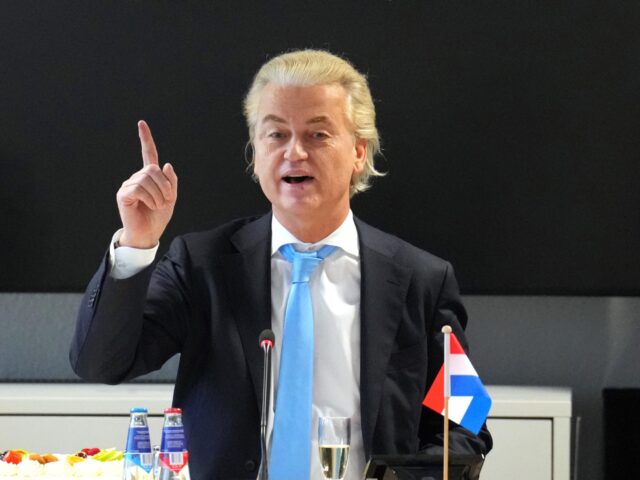The populist-led government in The Netherlands has announced it will use emergency powers to declare an asylum crisis and will formally request to “opt-out” from European Union migration diktats.
Dutch Asylum Minister Marjolein Faber, a member of populist Geert Wilders’ Party for Freedom (PVV) said this week that the government will enact a “legal asylum crisis” to stem the tide of mass migration into the country, which is one of the most densely populated in the EU and is suffering under a housing crisis.
“People are experiencing nuisance, the entire chain is stuck, there are no more houses… We have to do something about the influx – and very quickly. This can be done by declaring a legal asylum crisis,” Faber said according to De Telegraaf.
Faber, who echoed the promise from Wilders to enact the strictest ever asylum system, said that the measure will not require the government to go through the Dutch House of Representatives of Senate as it has the powers to declare such an emergency under the Aliens Act, much to the consternation of pro-mass migration parties of the previous government.
The government has the power to enact emergency asylum restrictions, including pausing all new decisions on refugee status, for a period of up to two years. The asylum minister also said that The Netherlands will also seek an “opt-out” from EU asylum and migration rules, as was previously afforded to Denmark in the 1990s before Brussels formalised the current system.
The restrictions on asylum will represent the fulfilment of the coalition agreement negotiated by PVV leader Geert Wilders, whose party became the largest in the country in last year’s elections and now serves as the main power broker in The Hague.
Commenting on the move, Wilders wrote on X: “A new wind is blowing in the Netherlands. 2.5 million people voted for the PVV and we make it happen.”
“If things continue like this, by 2050 there will be between 21 and 23 million inhabitants in the Netherlands. Far, far too much, on this very small piece of earth,” added MP Claudia van Zanten of the government coalition partner, pro-farmer BBB party. “Fortunately, this cabinet’s main agreement has a strong migration section.”
While the full scope of the plan has yet to be laid out, Germany’s Welt reports that the government will also seek to vastly reduce chain migration, with recognised refugees only being permitted to bring in their relatives if they have been in the country for at least two years, have their own accommodation and a stable income.
Plans to modify the asylum system also reportedly include scrapping the automatic residency for refugees who have lived in the country for five years. Meanwhile, the government is also seeking to reduce legal immigration by reducing the number of foreign student visas and work visas for migrants.

COMMENTS
Please let us know if you're having issues with commenting.